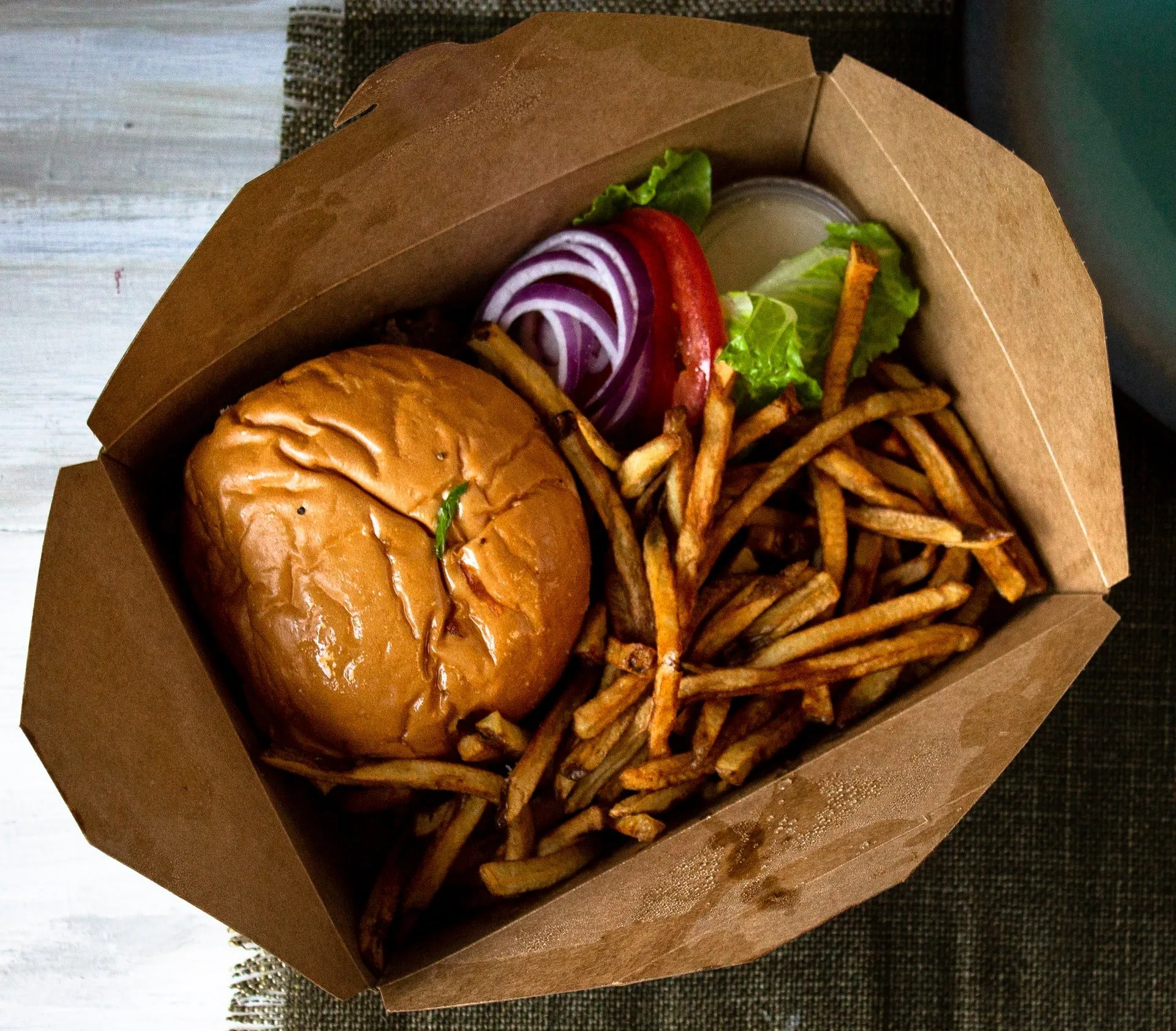Sometimes when the cravings hit, and you have no desire to make your way to the kitchen, the convenience of delivery apps has never even been so satisfying – especially during the lockdown. However, we all understand the health dangers that come from eating takeout foods and a new study has found that overindulging in this convenience and ordering too many takeaways can actually cut years off your life.
Too much takeout is slowly killing you
A study published in the Journal of the Academy of Nutrition and Dietetics, using data from the National Health and Nutritional Examination Survey 1999-2014, found that eating out or ordering too much takeout can increase your risk for chronic conditions, which in turn increases your risk of premature death.
“Frequent consumption of meals prepared away from home is significantly associated with increased risk of all-cause mortality,” the study stated.
For the study, the researchers tracked 35 084 people aged 20 or older who frequently ate restaurant food to assess their risk. Everyone in the study confirmed they ate at least two meals a day from restaurants.
The researchers analyzed data from 1999 to 2014 and by the time the interviews concluded in 2015, 2781 participants had died – 511 from heart disease and 638 from cancer. The study also found that those who ate two restaurant meals (or more) every day faced a 49% higher risk of premature death and a 65% higher risk of dying from cancer.

Photo by Erik Mclean on Unsplash
Is restaurant food dangerous?
A study published last year in January in the Journal of Nutrition found that most foods eaten at restaurants are unhealthy. The findings revealed that the typical American adult gets one in every five calories that they consume from a restaurant.
The researchers also noted that 70% of the meals that Americans consume at fast-food restaurants were of poor dietary quality and at full-service restaurants, about 50% were of poor nutritional quality. The remainder of the meals were of intermediate nutritional quality.
“Our findings show dining out is a recipe for unhealthy eating most of the time,” explains Dariush Mozaffarian, MD, Ph.D., senior author of the study, “It should be a priority to improve the nutritional quality of both full-service and fast-food restaurant meals while reducing disparities so that all Americans can enjoy the pleasure and convenience of a meal out that is also good for them.“
Should we avoid takeout?
Not exactly. After all, it’s not your fault, not completely anyway.
“At restaurants, two forces are at play: what’s available on the menu, and what Americans are actually selecting,” said Dr. Mozaffaria. “Efforts from the restaurant industry, consumers, advocacy groups, and governments should focus on both these areas.“
Making takeout healthier

Photo by Andrea Davis on Unsplash
In a perfect world, we’d all spend our evenings cooking out a Mediterranean-style dinner. Unfortunately, many people lead busy lives, and they often don’t have the free time to prepare meals as often as they want, which is why takeout has become such a necessity.
That said, there are a few ways you can enjoy takeout and still maintain your health.
“We found the largest opportunities for enhancing nutritional quality would be adding more whole grains, nuts, legumes, fish, and fruits and vegetables to meals while reducing salt,” Junxiu Liu, Ph.D., first author, and a postdoctoral scholar at the Friedman School, said in a statement.
You can also;
- Ask for sauce or dressing on the side.
- Asking for extra vegetables with your entrée
- Swap out fried side dishes with a side salad
- Split larger portions in half and enjoy leftovers at another meal
- Request a whole grain bun or bread instead of a white and refined option when ordering a sandwich
- Skip the “free” dessert or soft drink
- Add extra fruit or vegetables to your dish
- Choose grilled or baked seafood instead of processed protein choices
- Review the nutritional content of dishes before you order them.
Want to know more?
These days, we have a tendency to eat on the go, never stopping to consider what’s in our food. So, just how bad are processed foods?
References
Du, Y., Rong, S., Sun, Y., Liu, B., et al. (2021). Association Between Frequency of Eating Away-From-Home Meals and Risk of All-Cause and Cause-Specific Mortality. Journal of the Academy of Nutrition and Dietetics, S2212-2672(21)00059-9. Advance online publication. https://doi.org/10.1016/j.jand.2021.01.012
Liu, J., Rehm, C. D., Micha, R., & Mozaffarian, D. (2020). Quality of Meals Consumed by US Adults at Full-Service and Fast-Food Restaurants, 2003-2016: Persistent Low Quality and Widening Disparities. The Journal of nutrition, 150(4), 873–883. https://doi.org/10.1093/jn/nxz299





![women [longevity live]](https://longevitylive.com/wp-content/uploads/2020/01/photo-of-women-walking-down-the-street-1116984-100x100.jpg)









